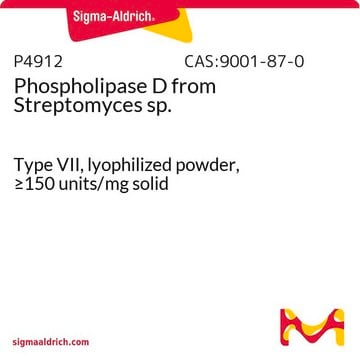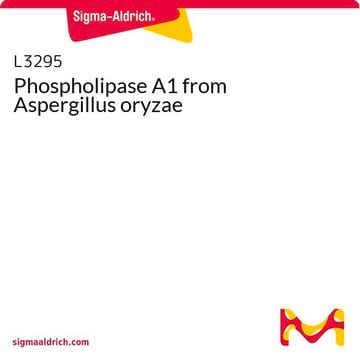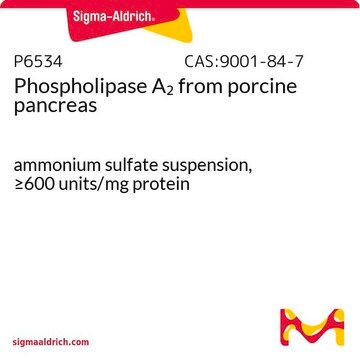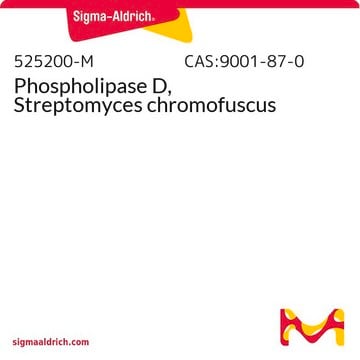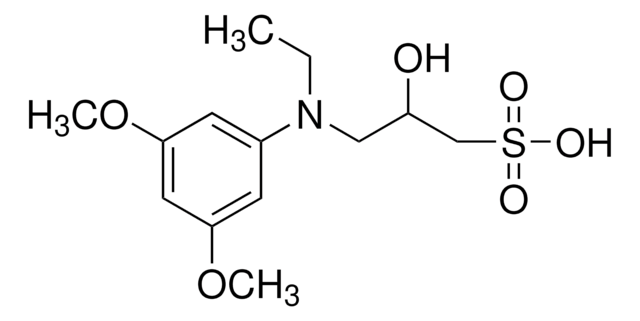P0065
Phospholipase D from Streptomyces chromofuscus
≥50,000 units/mL, buffered aqueous glycerol solution
Sinónimos:
Lecithinase D, Phosphatidylcholine phosphatidohydrolase
About This Item
Productos recomendados
form
buffered aqueous glycerol solution
Quality Level
specific activity
≥50,000 units/mL
mol wt
~60 kDa
shipped in
dry ice
Storage temp.
−70°C
¿Está buscando productos similares? Visita Guía de comparación de productos
General description
Application
Biochem/physiol Actions
Unit Definition
Physical form
signalword
Danger
hcodes
pcodes
Hazard Classifications
Resp. Sens. 1
Storage Class
11 - Combustible Solids
wgk_germany
WGK 3
ppe
Eyeshields, Gloves, type N95 (US)
Certificados de análisis (COA)
Busque Certificados de análisis (COA) introduciendo el número de lote del producto. Los números de lote se encuentran en la etiqueta del producto después de las palabras «Lot» o «Batch»
¿Ya tiene este producto?
Encuentre la documentación para los productos que ha comprado recientemente en la Biblioteca de documentos.
Los clientes también vieron
Nuestro equipo de científicos tiene experiencia en todas las áreas de investigación: Ciencias de la vida, Ciencia de los materiales, Síntesis química, Cromatografía, Analítica y muchas otras.
Póngase en contacto con el Servicio técnico